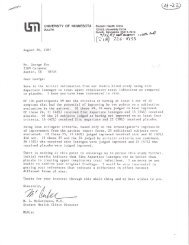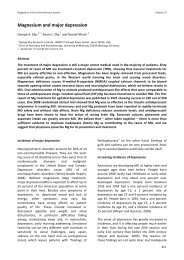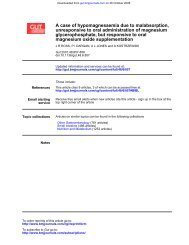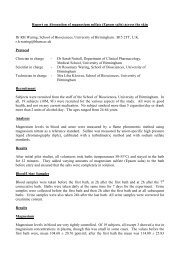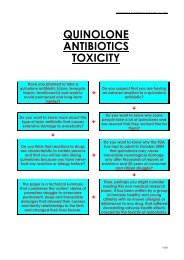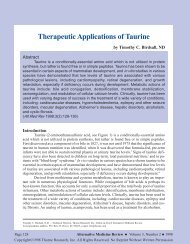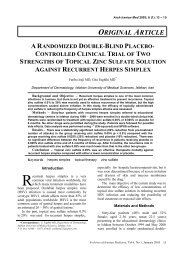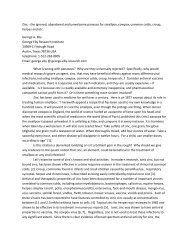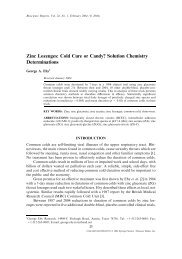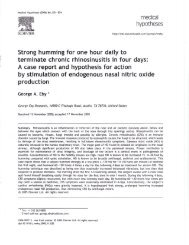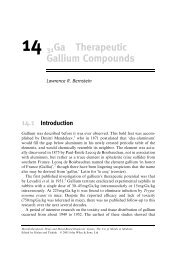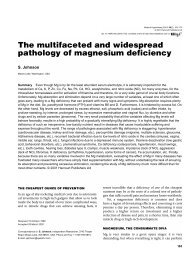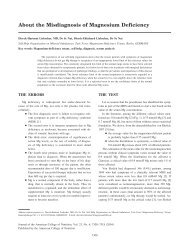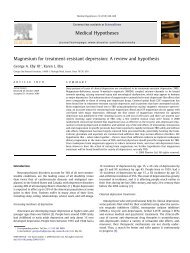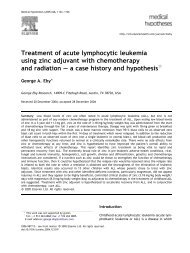10th International Magnesium Symposium Schedule of Events
10th International Magnesium Symposium Schedule of Events
10th International Magnesium Symposium Schedule of Events
Create successful ePaper yourself
Turn your PDF publications into a flip-book with our unique Google optimized e-Paper software.
7<br />
<strong>Magnesium</strong> gluconate <strong>of</strong>fers no more protection than magnesium sulphate<br />
following diffuse traumatic brain injury in rats<br />
Renee J. Turner, Katherine W. DaSilva, Christine O’Connor, Corinna van den Heuvel<br />
and Robert Vink. Department <strong>of</strong> Pathology, University <strong>of</strong> Adelaide, Adelaide, SA,<br />
Australia Robert.Vink@adelaide.edu.au<br />
Previous studies have demonstrated that magnesium salts, including the sulphate<br />
and chloride forms, are neuroprotective following traumatic brain injury (TBI) 1 .<br />
Recently, studies in cardiac ischaemia/reperfusion injury have demonstrated that the<br />
gluconate salt <strong>of</strong> magnesium may provide superior protection against oxidative<br />
damage and postischaemic dysfunction than MgSO4 2 . We have therefore compared<br />
the efficacy <strong>of</strong> both MgSO4 and magnesium gluconate (MgGl2) on outcome following<br />
diffuse TBI in rats. Adult male Sprague-Dawley rats were injured using the 2-metre<br />
impact acceleration model <strong>of</strong> diffuse TBI as previously described 1 . At 30 min after<br />
injury, animals were administered with either 250µmoles/kg i.v. MgSO4, MgGl2, or<br />
equal volume saline vehicle. Thereafter, animals were assessed for motor and<br />
cognitive outcome using the rotarod and Barnes maze, respectively. Treatment with<br />
either magnesium salt significantly improved functional outcome as compared to<br />
vehicle treated controls. There were no significant differences between the<br />
magnesium treated groups. We conclude that MgSO4 and MgGl2 are equally<br />
neuroprotective following TBI. Our results suggest that MgGl2 may only be more<br />
effective in conditions that produce ischaemia, where high concentrations <strong>of</strong> reactive<br />
oxygen species are generated.<br />
1. Heath, D.L. and Vink, R. (1999) J. Pharmacol. Exp. Ther. 288: 1311-1316.<br />
2. Murthi, S.B., Wise, R,M., Weglicki, W.B., Komarov, A.M. and Kramer, J.H.<br />
(2003) Mol. Cell. Biochem. 45: 141-148.



